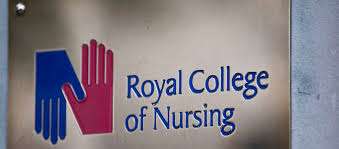
Although the official results of a ballot amongst staff have still to be released, when the Royal College of Nursing (RCN) do unveil them in the next couple of days, sources are confidently predicting that a substantial majority of nurses will have voted in favour of winter strike action in their on-going a dispute over pay.
Emergency care would not be affected
The RCN had recommended to its 300,000 members that they do indeed walk out, albeit reluctantly. If that does materialise, then that would only affect non-urgent care, emergency care would continue, and the industrial action would begin in a matter of weeks, very probably this side of Christmas, a spokesperson remarked.
Possibly not a national walk out
The vote has involved a series of individual workplace-based ballots all across the UK and it seems that the walk-outs will possibly be a local rather than national level, meaning that if nurses do not back action locally it is possible some hospitals and services will not have to become involved.
Minister appeals to nurses consciences
The government had appealed to nurses to “carefully consider” the impact on patients, with Cabinet Minister Oliver Dowden urging nurses to resist going out on strike, even if they have voted to do so, hoping to play on individual consciences. He tried to reassure the public by insisting that the government had “well-oiled contingencies in place” for dealing with any strike action, should it come to that, and the Department of Health is fully across how that sort of scenario would be dealt with.
Justification for strike put forward by RCN
Hitting back, Pat Cullen, the RCN general secretary and chief executive, countered by pointing out that huge numbers of staff, both experienced and new, are deciding they cannot see a future in a nursing profession that is not valued nor treated fairly. Therefore she said: “Our strike action will be as much for patients as it is for nurses.” The precise nature of the strikes has not yet been determined, but it will likely see patients face disruption to operations and appointments while already facing record NHS waiting lists.
Research suggests nurses working one day for nothing
The RCN has called for a rise of 5% above the RPI inflation rate which currently stands at above 12%, stating that the below-inflation pay award offer they have received is just another kick in the teeth, following years of squeezes on nurse’s salaries. To be fair research commissioned by the union did find that average pay fell by 6% in the ten years between between 2011 and 2021, once inflation was taken into account, compared with a 4.6% drop for the whole UK economy.
The studies went on to conclude that experienced nurses in England, Wales, and Northern Ireland need a pay rise of 45% by 2024-25 just to return their salaries to levels seen in 2011, as currently they are effectively working the equivalent of one day a week for nothing, with the increasingly long hours they are expected to undertake.
First time ever striking
The nursing industry, who have salaries that can range anywhere between £27,000 and £55,000 a year depending upon their level, which can be bracketed as new, experienced, specialist, or consultancy, received a 3% pay rise last year, in recognition of their work during the pandemic, despite a public-sector pay freeze.
However, that has been swallowed up and passed by the cost of living crisis, prompting this decision by the RCN, which is the first time that they have balloted all its members for strike action in its 106-year history.
Exploiting good will
The RCN say that in the last year 25,000 nursing staff around the UK have left the Nursing and Midwifery Council register, leaving behind them a record number of vacancies, as goodwill and expertise were said to be constantly “exploited” by successive governments, and something simply has to be done right now, otherwise there will be yet another major crisis to deal with. Mrs Cullen said: “Patients are at great risk when there are not enough nurses.”
Awarding large pay rise could save money in the long run
Such a pay rise would actually help the NHS save money in the long term, as it would be cheaper than hiring staff from overseas, according to the study. That sort of figure is realistically miles away, but Dr Gavan Conlon, who oversaw the research, said that bringing staff in from overseas costs approximately £16,900 more annually than retaining a nurse, while using agency workers as alternatives costs around £21,300 more per year.
Point of no return
Miriam Deakin, of NHS Providers, said the sad fact is some can earn more working for online retailers, or in supermarkets, which is a really bad reflection on present times. She pointed out that the NHS was reaching a “tipping point” when it comes to the workforce, and the shortage of staff threatened to hamper the ability of the health service to tackle backlogs in treatment, as more and more leave the profession due to things like: too much pressure, workplace culture, or other personal circumstances.





I’ve been a ward nurse working full time for 45 years I found my money ok, because I worked bank holidays , weekends and nights, today they only want to work Monday to Friday , obviously if you want to earn more money , you need to work unsociable hours , that’s the job and makes your money up considerably, and far more nurses due to our lovely overseas nurses